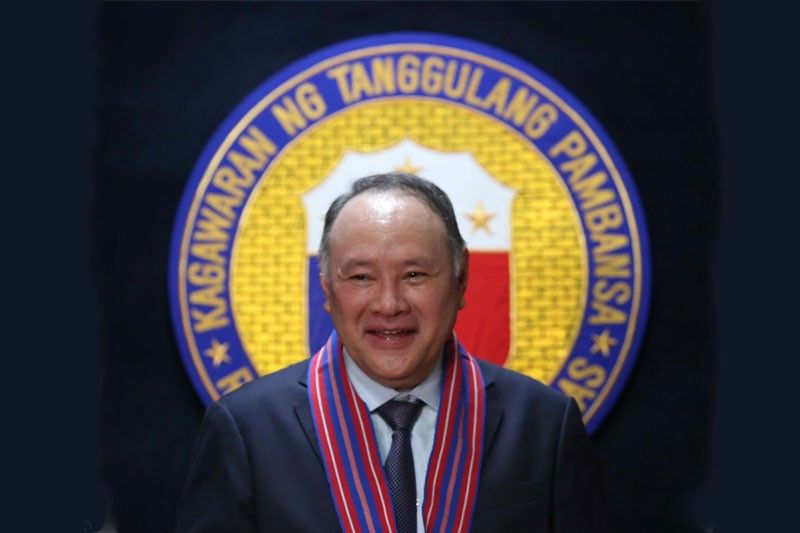
Upgrade to High-Speed Internet for only ₱1499/month!
Enjoy up to 100 Mbps fiber broadband, perfect for browsing, streaming, and gaming.
Visit Suniway.ph to learn
EJ Macababbad - The Philippine Star
July 14, 2025 | 12:00am
MANILA, Philippines — US President Donald Trump’s war against Ivy League schools is hampering a petition by Filipino-American students to establish a Tagalog language program at Brown University – an effort that has been ongoing for decades.
The Filipino Alliance, composed of Fil-Am university students, has already gathered over 1,000 signatures urging Brown to join the ranks of Harvard and Yale in offering a Tagalog course.
Petitioners, however, said Brown’s administrators are preoccupied by the Trump administration’s threats to cut funding, as creating a new program typically involves budgetary considerations.
“A lot of the money that Brown had is slowly being eviscerated, so that’s the rocky landscape we have to navigate,” Alexa Theodoropoulos, an incoming junior and vice president of the Filipino Alliance, told The STAR in an interview.
According to Theodoropoulos, whose relatives reside in Taguig, Harvard and Yale have dedicated funds to their Asian studies programs from their own budgets and alumni donations.
Harvard has begun teaching Tagalog in the academic year 2023 to 2024, while Yale will introduce its program by September to November this year.
But Theodoropoulos said Brown’s funds are shrinking, partly due to relentless White House attacks, prompting the university to implement belt-tightening measures, such as hiring freezes, pay cuts and reduced stipends for researchers.
“In our situation, not only does Brown not have nearly as much money to begin with, and especially not for anything in Asian studies, but it’s been operating at a loss, and has been actively losing more and more money, and is also in a bit of an existential crisis right now, because of how much funding it’s losing, and because of the political threats,” she said.
Trump is setting his sights on Ivy League schools over their alleged failure to combat antisemitism, and for serving as platforms for liberal indoctrination.
The White House announced in April that it would block $510 million in federal contracts and grants to Brown. In its 2024 budget, the Rhode Island-based university received $184 million from the federal government.
In addition, grants from the National Institutes of Health to Brown and four other Ivy League schools have been paused since April over research related to the LGBT community and diversity, equality and inclusion.
The Filipino Alliance has long sought to establish a dedicated Tagalog program at Brown since the group’s founding in 1988.
An estimated 1.7 million people speak Tagalog in America, according to a 2022 report by the United States Census Bureau, making it the third most-spoken language outside of English.
Advocates in the past have resorted to forming group independent study projects (GISPs) – courses designed by students outside the regular curriculum with a maximum of 20 enrollees and a faculty sponsor – which had to adjust their topics to be more accessible to professors, such as dissecting the Philippines as a US colony.
Recently, the alliance has scored a victory in pushing a program on Southeast Asia’s food history, in collaboration with the Southeast Asian Studies Initiative, so the group is now setting its sights on institutionalizing Tagalog classes.
Anna Zulueta, Filipino Alliance co-president, said GISPs have become untenable due to the constant paperwork involved.
“We decided that we actually need to become more serious about this and put more energy into it, seeing that these other paths that we had been using – it was kind of time to move on to the next thing,” Zulueta, who will graduate in December, told The STAR.
Theodoropoulos said that Dawn King, Brown’s deputy dean for curriculum, advised her in May to explore cross-enrollment in Harvard for Tagalog classes while the university considers hiring an official instructor.
However, Harvard has no fixed policies for course sharing, she said, requiring separate negotiations with its administrators, which complicates the process.
Both students said the Department of Foreign Affairs and the Philippine consulate in New York have shown interest in providing seed funding to hire a Tagalog teacher, but Brown would need to assess its legality since it would count as an international donation.
Zulueta admitted that the Tagalog program likely won’t materialize during her or Theodoropoulos’s time, but the passion behind the initiative is driven by a desire for Filipinos to be better represented at Ivy League schools like Brown.
“(Brown) should at least be doing justice to a language that so many people in the United States speak,” Zulueta said.
“It is a method of repairing the wrongs of history and symbolizing just how much Filipinos have contributed to campus life and culture at Brown and in the United States,” she stressed.
Zulueta, whose family lives in Quezon City but has ties to Cebu, added that her group is prepared to show patience, as Brown tends to “wait students out.”
“We’re really pushing to get this done, because if Brown doesn’t approve it during our time, we’re not sure when they will. And we’re not sure how many students will be pushing for this as hard as we are,” she said.

 11 hours ago
3
11 hours ago
3



